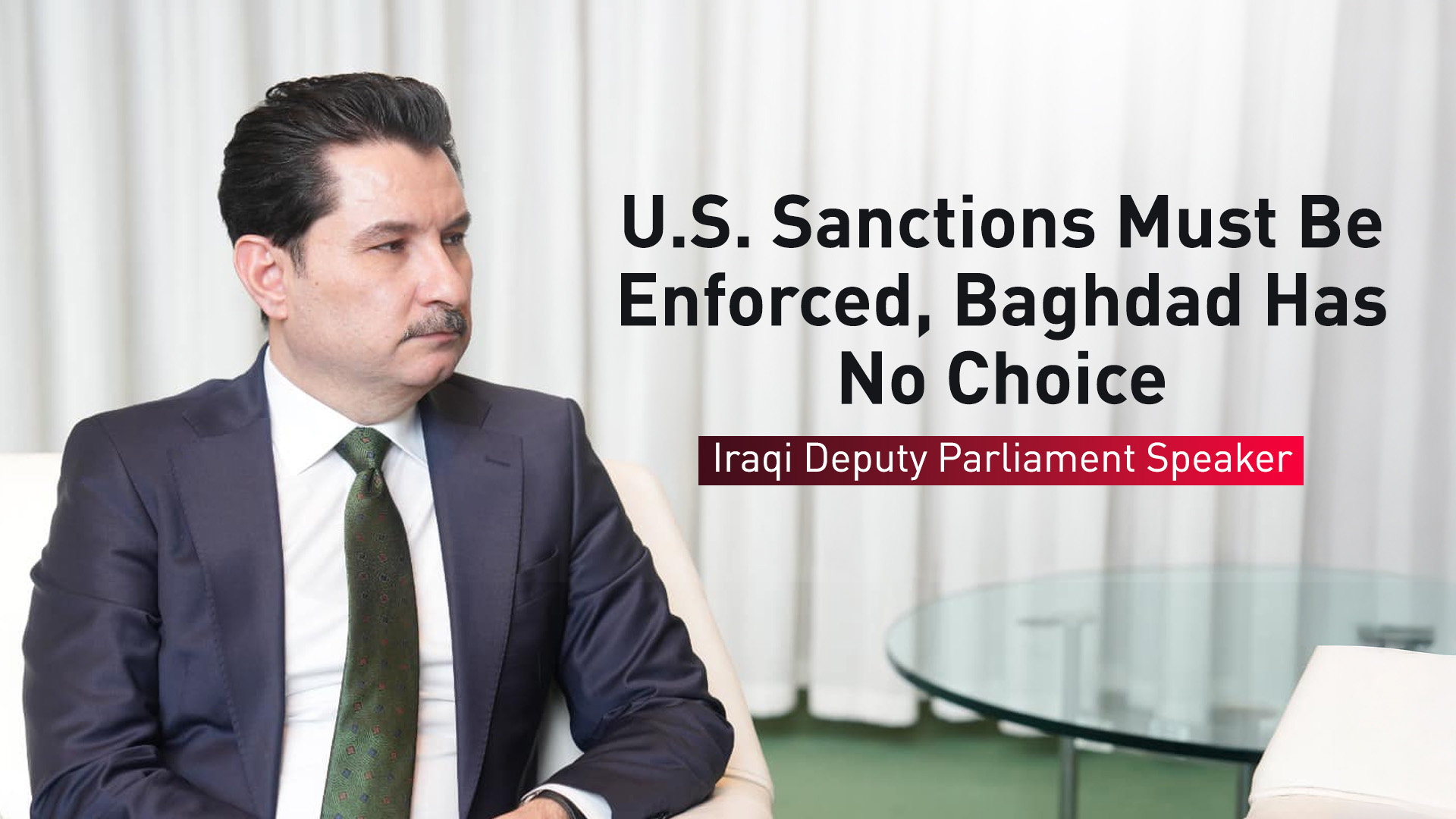Iraqi Deputy Parliament Speaker: U.S. Sanctions Must Be Enforced, Baghdad Has No Choice
Regarding the future of Iraq’s armed militia groups, Abdullah, speaking from Washington, revealed that their leaders are increasingly concerned about the policies of Trump’s administration.

ERBIL (Kurdistan24) – The Deputy Speaker of the Iraqi Parliament, Shakhawan Abdullah, stated in an exclusive interview with Kurdistan24 Monday that any financial sanctions imposed by the United States must be fully implemented by the Iraqi government, leaving Baghdad with no alternative.
"America is determined to dismantle Iraqi militia groups," Abdullah explained, adding that with President Donald Trump back in office, relations between Baghdad and Washington are likely to get more tense.
Speaking from Washington, he emphasized the significant influence of U.S. policies on Iraq’s financial system. "Any financial sanctions issued by the U.S. will be enforced 100% in Iraq. It is clear that Iraq still operates with the U.S. dollar and sells its oil, with revenues returning to the country through American financial channels. Therefore, Iraq has no option but to comply with U.S. financial directives."
He further pointed out that U.S. sanctions have immediate and tangible consequences. "One Iraqi parliament member placed on the U.S. sanctions list could not even receive his salary. This proves that any U.S. sanctions must be executed by Iraq without exception."
Growing Concerns Over Militia Groups Under Trump Administration
Regarding the future of Iraq’s armed militia groups, Abdullah revealed that their leaders are increasingly concerned about the policies of Trump’s administration. "Militia leaders express their fears in political meetings, convinced that Trump’s return to power will result in a more aggressive U.S. approach against them," he stated.
He also mentioned ongoing debates about integrating militia forces into Iraq’s Defense or Interior Ministry, but "many Shiite factions strongly oppose this move due to personal and financial interests." He explained that if militias were formally incorporated into state security forces, their actual numbers would be exposed, revealing discrepancies in salary allocations. "The U.S. is taking a firm stance on this matter and is determined to prevent militia groups from operating outside state control," he concluded.
Iraq’s relationship with the United States has remained complex, particularly concerning financial policies and the role of Iran-backed militias. In recent years, Washington has imposed financial restrictions to curb illicit activities and weaken non-state armed groups operating within Iraq.
With President Donald Trump back in office, his administration is expected to take a more confrontational approach toward Iran-backed factions in Iraq. This shift in U.S. policy is already affecting Baghdad’s financial and security strategies, as American pressure mounts on the Iraqi government to rein in militias and enforce economic sanctions.